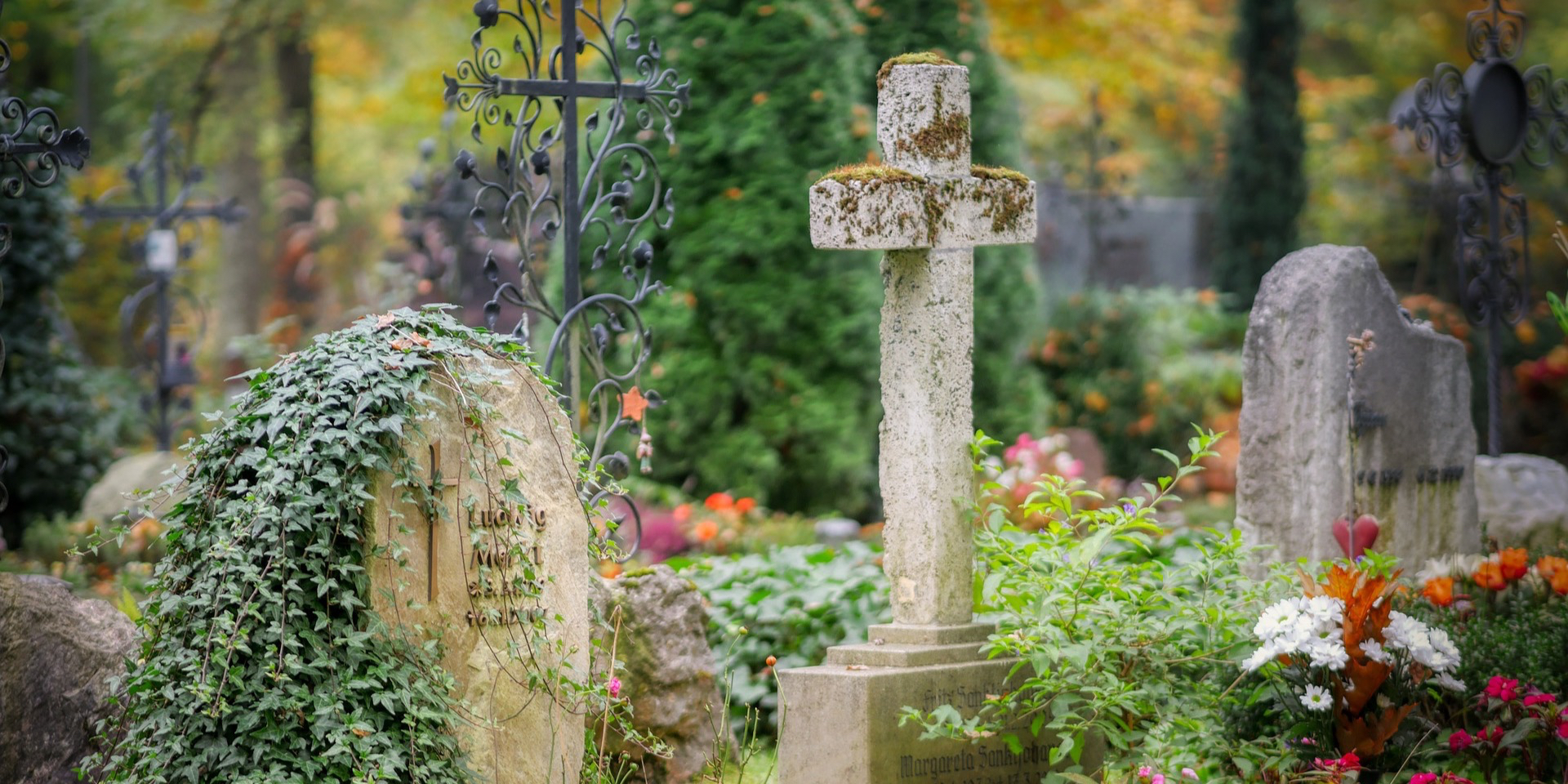“Brothers and sisters, we do not want you to be uninformed about those who sleep in death, so that you do not grieve like the rest of mankind, who have no hope” (1 Thessalonians 4:13).
Paradoxically, one’s personal view of death takes many forms: it depends and changes according to age, one’s own history, one’s state of mind, the culture in which one is educated, one’s socio-human environment, even one’s state of health, and one’s reading, among other things.
Philosophising about death
When we are not close to death, the predominant approach is philosophical, meditating on the whole range of its meanings. Constantin Noica evokes an ancient way of thinking designed to resolve the tension of the confrontation with death: As long as it does not exist, I am; when it exists, I am no more. In both cases, therefore, my encounter with death is not possible.
Another contemporary philosopher, Thomas Nagel, said that the most painful aspect of death, when it becomes imminent, is the regret that while you cease to enjoy life, all the other elements of the world will continue to exist in seemingly sovereign disregard of your disappearance: the sun will continue to shine in the sky, the birds will continue to sing in the leafy trees, the wind will continue to blow—everything will continue its natural course, albeit without you.
The insignificance of all of us, which makes us equal in the face of death, was also felt by the poet Mihai Eminescu when he wrote: “I didn’t think I’d ever learn to die…” The poignancy of this verse also lies in the fact that the bitter realisation belongs to a man full of life and spirituality.
The same contrast between the vitality of youth and the shadow of approaching death was captured in an exclamation by the poet Nichita Stănescu: “…and how much death was in his death!”
The year 2022 brought the breeze of death to my family. In the concrete proximity of death, one is surprised, even at oneself, to notice a general negligence: the fact that we humans, most of the time, relate to the phenomenon of death as if it were avoidable. Yet it is the only certainty this world offers us—that all people die. In fact, even the classic example of deductive reasoning in Aristotelian logic provides us with the clarification: All humans are mortal. Socrates is a human. Therefore, Socrates is mortal.
The reality of death
Philosophical certainty becomes a striking reality when Socrates’ place is taken by… George, Florentina, and Marcel. The first feeling is one of utter helplessness. It is one thing to try to come to terms with the thought of one’s own death, perhaps even to learn how to die, and quite another to remain dismayed and dumbfounded by the death of a loved one, aware that any action is useless and at the same time extremely difficult to take, exhausting even.
There is also the strangeness of being confronted with the departure of a loved one, a strangeness that comes from looking at the deceased and saying to yourself: It is him and, at the same time, it is not him—an absurd observation that does not fit into the human mind, which is governed by several logical principles, including the principle of non-contradiction: two statements, one of which contradicts the other, cannot both be true at the same time and in the same way. An equally strange feeling is the realisation that the departed one is really nowhere to be found; the lifeless body retains nothing of the person who had it—sometimes not even a resemblance, a familiarity of face. The only face is that of death, which moves the body into the realm of objects. All memories migrate from spatiality to temporality: from nowhere to never or ever, once…
The attachment of some mourners to the place of burial seems even stranger when you realise that the loved one, with all his or her personality, is nowhere.
It is like waiting in the place where you last saw them, a place where a vague expectation insists on fixing a sure landmark. Jesus’ disciples reacted in a similar way when, after the resurrection, He ascended to heaven and left the place empty, and those Galileans, refusing to accept the farewell, remained with their eyes fixed on the place of the ascension.
After the funeral, feelings of deep melancholy arise at the thought of eternal loss, or those of hope, the hope of seeing each other again, as the Apostle Paul says, in an eternal world of God. The middle ground seems meaningless: could we imagine, in a finite world with a limited memory and such a short human life, eternal memory or eternal regret? Or could we accept the idea that some fragmented part of the departed floats chaotically in the cosmic stream, if there is a loving Creator who knew them, guided their life and decided their eternal destiny? Or could we admit that an ethereal “personality” of the deceased remains, and yet does not continue to be the known and loved one, because it would manifest itself to the loved ones in a totally different way—cold and frightening?
Encounter with death
I felt and experienced all this in 2022, when I lost a brother and two cousins: my twin brother Marcel, my cousin Florentina, and her husband George. It is impossible to describe in words the feelings and thoughts caused by such losses; they are beyond language and beyond any communicable experience.
I was able to visit my brother 16 days before he left us: he was lying in a hospital bed, ravaged by leukaemia since 2015, and plagued by pneumonia, which had settled in his body due to his low immunity. He had a special light in his eyes, a kind smile and a soft voice, as if he wanted to comfort me—he wanted to comfort me! I felt powerless with all my being to help the man with whom I had spent 70 years of my life, with whom I had shared joys and sorrows, projects, hopes, and dreams, with whom I sometimes communicated with a single word, a half word or just a glance, an alter ego with whom I conversed even when he was not in my immediate vicinity.
Now we were sitting face to face, looking into each other’s eyes, sharing memories and avoiding talking about what was more important—death, the imminence of which he was more convinced of than I was. He had fought it tooth and nail, telling Cristina, his devoted wife who supported him throughout this struggle, that it was his moral duty to fight to survive, not to abandon his loved ones, knowing how much they loved him.
My feeling of helplessness was transformed through empathy into something else: the awareness of loneliness in the face of death. In the last moments of life we are absolutely alone, for others, no matter how much they love us, cannot tear us from the clutches of death. Nor can they accompany us beyond death. Our only comfort is Jesus’ promise: “Do not let your hearts be troubled. You believe in God; believe also in me. My Father’s house has many rooms; if that were not so, would I have told you that I am going there to prepare a place for you? And if I go and prepare a place for you, I will come back and take you to be with me that you also may be where I am” (John 14:1-3). Our hope is the love of God and our love for God.
The funeral took place in the commune of Cerașu, in the north of Prahova County, on the border with Brașov and Buzău Counties, where the family’s holiday home is located. There were dozens of friends who came to accompany him on his final journey, as well as many villagers who respected and loved him, considering him one of their own. In Cerașu, with the help of his wife and his two sons, Andrei and Marc, Marcel created a world of his own, a world of beauty, goodness, and authenticity. Everything was conceived, designed and created with love, “for the children”, as he used to say. We know from the Bible that “a tree is recognised by its fruit” (Matthew 12:33). Together with Cristina, Marcel produced some admirable fruit. He has left us a model of life that can inspire many people. The loss of such a person is felt as a great injustice.
And yet the hope of which the Bible speaks is a powerful one, not one that offers us illusions and substitutes. We are told that if we believe in the resurrected Jesus Christ, “we believe that God will bring with Jesus those who have fallen asleep in Him” (1 Thessalonians 4:14). May this remain the comfort of our souls in the bright prospect of reunion, when death will be “swallowed up in victory” (1 Corinthians 15:54).
Dumitru Borţun testifies to the experiences and reflections that the proximity of death—the loss, in the past year, of loved ones—has caused him.




















